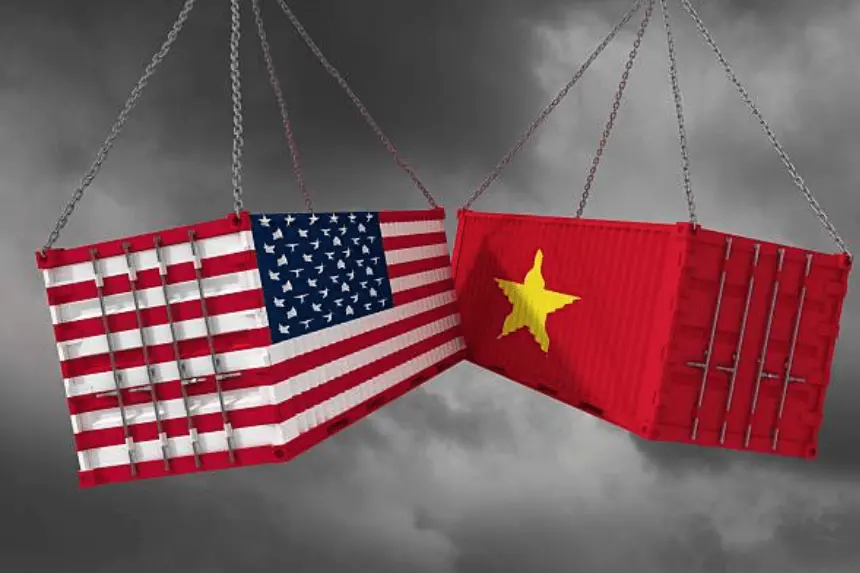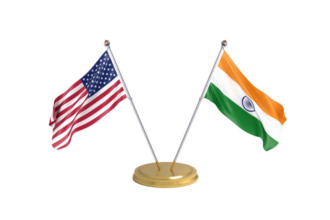The recent signing of a trade agreement between Vietnam and the US is a major turning point in the changing world of international trade. This deal, which was worked out through last-minute talks, shows that both countries are committed to improving their economic ties with each other and fixing trade imbalances. The deal sends a clear message that the United States is working towards a fairer and more reciprocal trade framework. It includes new terms like lower tariffs, more access to markets, and stricter rules on trans-shipping. As companies on both sides think about what this agreement means for them, it will be very important to read the fine print so they can take advantage of the chances it offers.
What are the main changes that the Vietnam-US trade agreement makes?
Changing the tariff structures between the two countries is one of the most important parts of the Vietnam-US trade agreement. Before the deal, Vietnamese goods coming into the U.S. would have to pay a 46% tariff starting next week. This was part of a larger effort by the U.S. government to deal with what it saw as unfair trade practices. The final deal, on the other hand, lowers that number to 20%, which is a big drop that gives Vietnamese exporters some breathing room.
Vietnam has agreed to get rid of all tariffs on goods from the United States in exchange. In a public statement, President Donald Trump stressed this point, saying that the United States will now have full access to Vietnam’s growing market for the first time. This change means that American farmers, manufacturers, and exporters can now send their goods to Vietnam without having to pay extra taxes. This makes American goods more competitive in a region where people are known to be price-sensitive.
This change makes trade between the U.S. and Vietnam more balanced. Vietnam’s economy is growing quickly and is based on exports, so it is important for the country to keep access to one of the world’s largest markets. Opening up a new export channel could help the U.S. make up for trade deficits and give American businesses new chances to grow. Also, the deal keeps the tariff at 20% instead of the planned 46%, which keeps the Vietnamese economy from being shocked while still meeting the U.S.’s need for fairer trade.
What does the agreement say about trans-shipping?
The Vietnam-US trade agreement not only changes the headline tariff rates, but it also makes trans-shipping, which is when goods from one country are sent through another to avoid tariffs, more difficult. This has become a bigger worry in the last few years, especially with the ongoing tensions between the U.S. and China. The U.S. government says that a lot of Vietnamese exports are really Chinese goods that have been relabelled and sent through Vietnam to avoid U.S. tariffs.
To stop this, the deal puts a high 40% tax on goods that are sent through other countries. The goal of this action is to stop companies from lying about where their goods come from, which hurts the fairness of trade systems and creates unfair competition. Some U.S. manufacturers are happy with this policy, but there are still questions about how trans-shipping will be defined and enforced.
People often think the term is vague, and it can be hard to prove without full supply chain transparency. It may be hard for Vietnamese officials to find and control goods that fit this description, especially if the way they are labelled and documented is changed. Still, the policy is a strong sign that the U.S. is serious about enforcing trade rules and wants its partners to be more responsible.
This rule shows businesses how important it is to follow the rules. Businesses that use Vietnam as a hub for moving goods will need to make sure that their operations are legal, can be verified, and are fully documented. Not doing this could lead to higher costs, legal problems, and a bad reputation. Read another article on Vietnam Economic Growth & Challenges
What should businesses do about the new trade rules?
The Vietnam-US trade agreement’s implementation is a turning point that businesses on both sides need to quickly adapt to. The removal of tariffs on goods coming into Vietnam opens up a profitable and growing market for American exporters. Vietnam is a great place for U.S. products, from farm goods to high-tech gear, because its middle class is growing, more people are moving to cities, and people want foreign goods.
For Vietnam, a 20% tariff on exports to the U.S. is still a cost, but it’s much easier to deal with than the 46% that was suggested before. This change helps Vietnamese businesses stay competitive and gives them a reason to raise their compliance and sourcing standards. Companies that do business in Vietnam must now make sure that their supply chains are open, legal, and set up in a way that can pass the tests of international regulators.
This new trade environment gives companies a chance to move up or down in global value chains. Those who move quickly—by rethinking their supply chains, making it easier to track products, and following the rules—will benefit the most. The U.S. market is still one of the most profitable in the world, and businesses can’t afford to miss the chance to keep or grow their access to it.
What Does the Deal Mean for Future Trade Policy?
The US-Vietnam trade deal is part of a bigger change in how the US is dealing with international trade under its current leaders. It supports a common idea: countries that let the U.S. trade with them and follow fair trade rules are more likely to keep good trade ties with the U.S. This isn’t the only time this has happened; there have been more deals like this, including recent ones with the UK and a temporary lowering of tariffs with China.
The message is clear for other economies. The U.S. wants its trading partners to be open, work together, and be willing to make deals. Countries that don’t do this could face high tariffs and bad relations with other countries. On the other hand, those who talk to each other in a constructive way will have better access to the U.S. market and a more stable trade environment.
This deal could also be used as a model for other deals in the future. It strikes a good balance between opening up markets, enforcing rules, and promoting benefits for everyone. It shows that fairness, not pressure, can help build strong trade relationships, and that working together for a long time often leads to better results than trying to get ahead quickly.
The End
In short, the trade deal between the US and Vietnam is a big change in how business is done around the world. It makes things easier for both countries, makes it easier to crack down on unfair business practices, and opens up new markets for American businesses. The policy makes things harder in some areas, like enforcing trans-shipping and making sure tariffs are paid, but it also rewards people who are open and strategic.
Vietnam is now an important part of the global manufacturing supply chain, and this agreement makes it even more important as a trade partner for the United States. For businesses that do business around the world, the way forward is clear: accept the changes, adapt quickly, and take advantage of the new opportunities that this historic deal has created.








